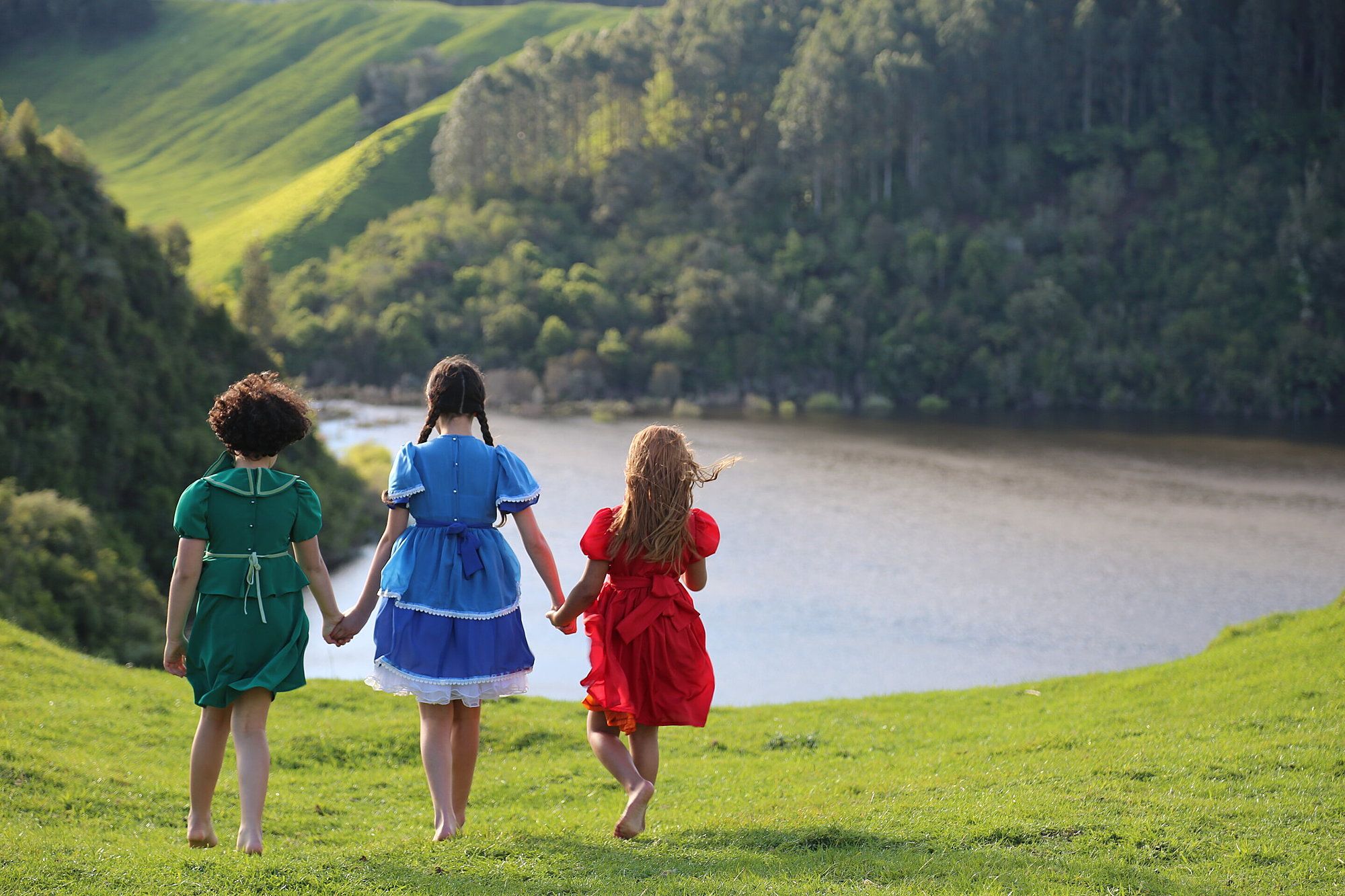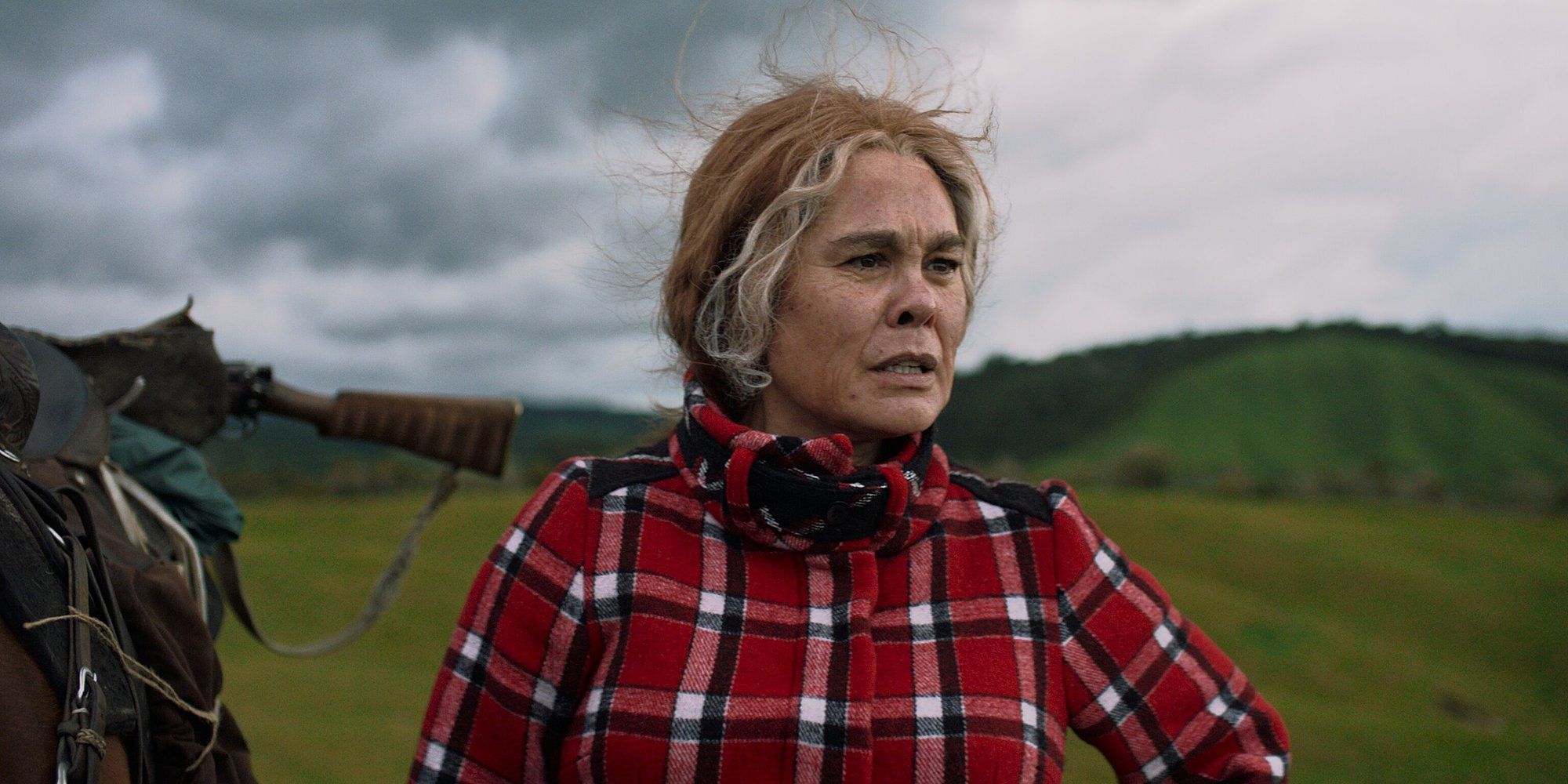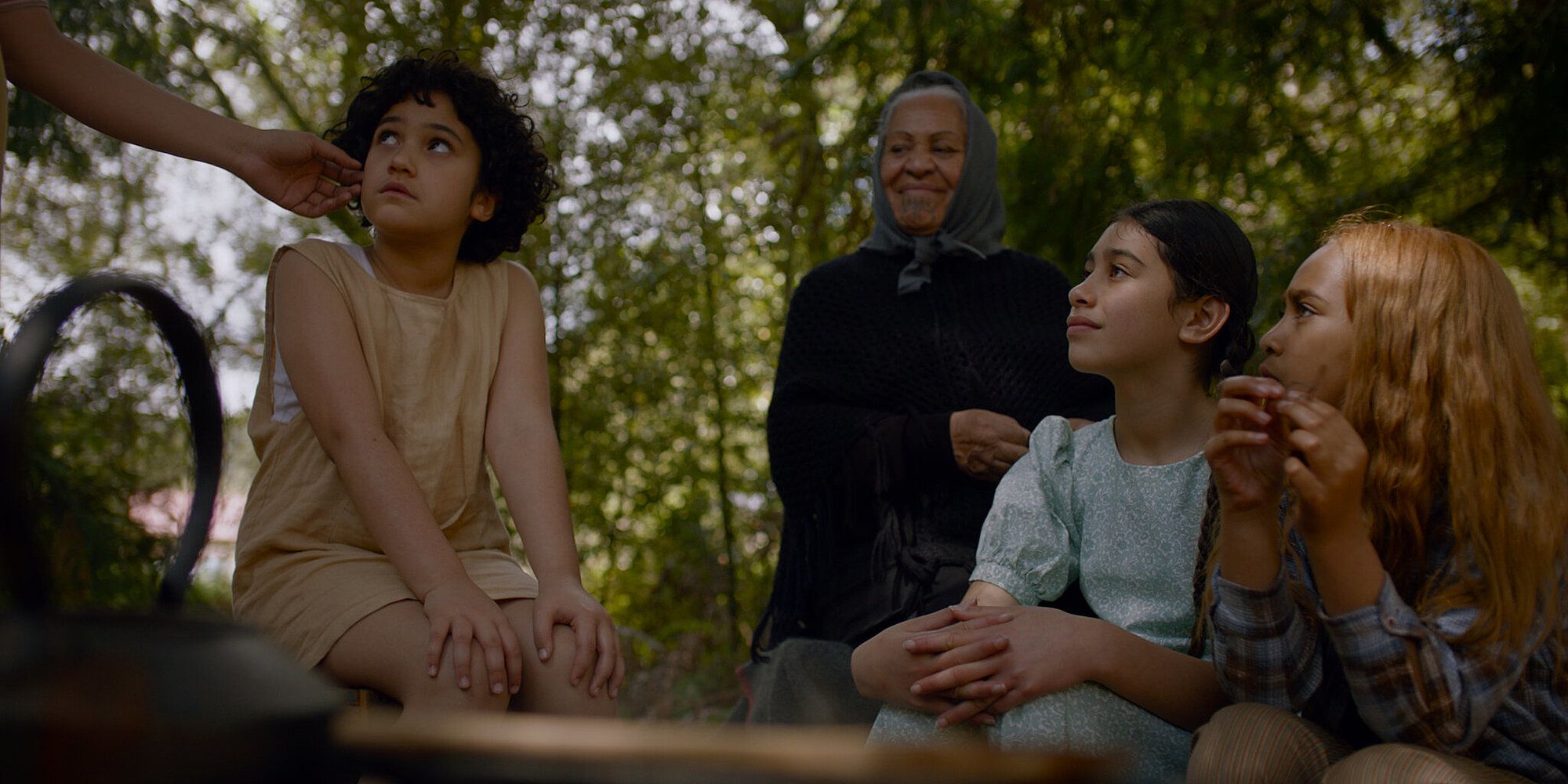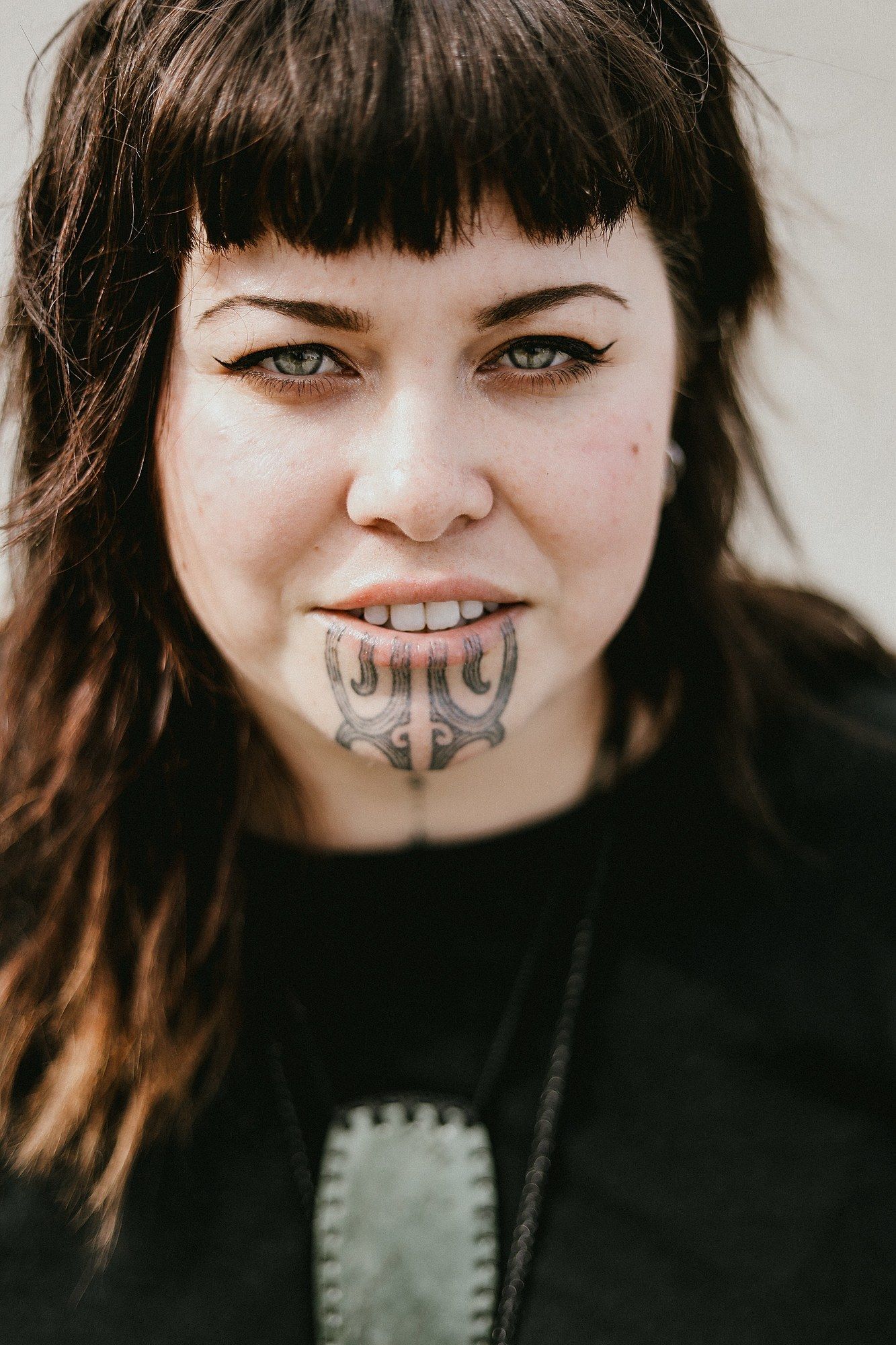Which Cousin [Missy, Makareta, Mata] Are You?
Ana McAllister sees parts of herself and her whānau reflected in Mata, Missy and Makareta, characters from the movie Cousins, directed by Ainsley Gardiner and Briar Grace-Smith.
Cousins is one of those special movies that can truly transport you to another time. Movies like Mauri, by the late, great Merata Mita, Boy and Mahana all do this. In watching these unforgettable works you are moved to a different space, with a different feel. Sitting in the metaphorical ‘space’ of Cousins, Māori and other tangata Pasifika may see their mum, their aunty, their nanny and maybe even themselves. It’s a karanga ki ngā mana wāhine in all our forms and nuances. Based on one of the many monumental books from iconic Māori author Patricia Grace, Cousins follows three wāhine Māori and their journeys of existing in colonial New Zealand.
To me, these three are so familiar; so who are they to you, in your whānau?
Rachel House as Missy.
Missy, a character played by Hariata Moriarty, Keyahne Patrick Williams and Rachel House, is your aunty at the marae. When she was a kid she was crazy, a bit psycho. She’s got that ‘lawful good’ energy from Dungeons and Dragons – meaning she does what is needed – a combination of compassion and honour. Missy’s practical, she knows how to gut a pig and she’s the one who susses the logistics to get everyone together for the hui. Missy gives me BIG Papatūānuku vibes – she holds down the whenua. For me, Missy is my aunty Kerry. She’s in my hometown, looking after everyone, will call it like it is and is all about getting the mahi done!
The young cousins (from left), Te Raukura Gray as Mata, Mihi Te Rauhi Daniels as Makareta and Hariata Moriarty as Missy.
Makareta is played by Mihi Te Rauhi Daniels, Tioreore Melbourne and Briar Grace-Smith. Grace-Smith is also the screenwriter and co-director alongside Ainsley Gardiner. In your whānau, Makareta was the favourite one, growing up. All the adults loved her. She was drawn to the city by the excitement but always kept the whenua in mind. The political one, she was always part of movements, working hard for Tino Rangatiratanga. She’s smart and career-focused. A real Hine Tītama vibe. In my whānau, Makareta is my tuakana Tara. Tara is so intelligent and her endless energy for the fight is uncompromised.
Tanea Heke as Mata.
The final cousin is Mata, who’s played by Te Raukura Gray, Ana Scotney and Tanea Heke. Mata is an interesting character who is ultimately the most violently impacted upon by colonial forces. Mata is quiet and watchful. She is able to look past the veil of this world into Te Pō. She is the one that everyone would’ve gone to if they needed help with their wairua or mauri. A tōhunga. In your whānau, she might be the one who intuitively rings you when something’s wrong. She can sense how everyone is doing and is able to help heal her people. For me, Mata reminds me of myself. She is the one who’s helping the tīpuna who are already gone. She is the one who’s got one foot into Te Pō, like Hine Nui Te Pō.
Missy, Makareta and Mata all embody different aspects of ngā mana o ngā wāhine. In many Māori films, though wāhine are portrayed, they are often not the lead, and there is rarely such a range of different kinds of wāhine. For us, these kinds of characters have been missing from our cinemas for so long. Wāhine Māori who work together to lift each other up – who are all so different. For wāhine Māori to finally have this kind of representation is a breath of fresh air. It is a rope to grab onto while we are wading the waters of patriarchal colonialism. It is the metaphorical hug for all your aunties while you cry with their stories.
Cousins will undoubtedly become a pillar of Māori filmmaking
But what about the tāne? Māori men have long been negatively portrayed in movies – I mean, the most famous ‘Māori movie’ is probably still Once Were Warriors. Our tāne are so often shown as violent and angry, as one-dimensional objects. But Cousins has deliberately made efforts to block that well-worn thematic trope. The tāne in this movie are loving husbands, kaumātua who respect the power of wāhine, and crack-up cousins who are cheeky and annoying in a way that you can only love looking back at as an adult.
In the direction of Cousins, it feels as though Grace-Smith and Gardiner have worked together in a way that we often see Indigenous and native womxn working, which is truly collaborative, and although the sailing may not always be smooth, it is clearly a film with the hands of two wāhine on it. It would be impossible to get this range of personalities in the main characters without the directors coming from different places. The different perspectives that Grace-Smith and Gardiner, and of course the original writer Patricia Grace, have brought to this movie have created characters that I hope many Māori will be able to see themselves reflected in. In my opinion, Cousins will undoubtedly become a pillar of Māori filmmaking and inspire us for generations to come.
Cousins is in the cinema on March 4 (for most of the country, and hopefully on March 7 in Tāmaki), so take your sisters, your mum, your aunties, and argue about who was who on the drive home.




